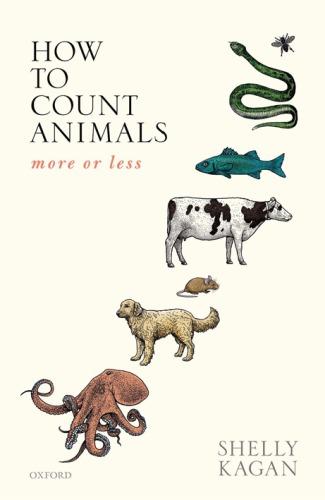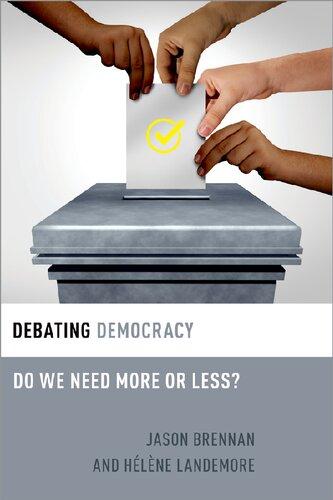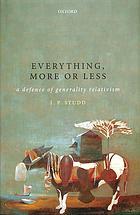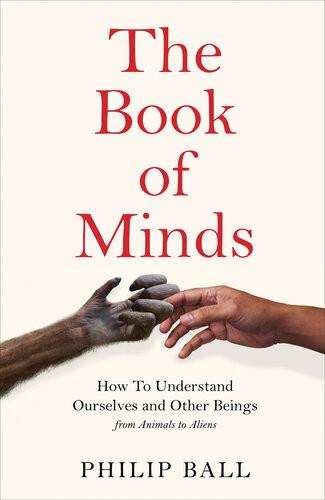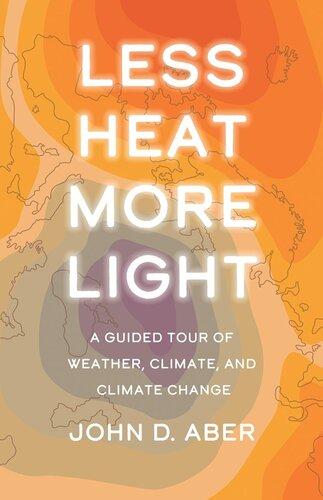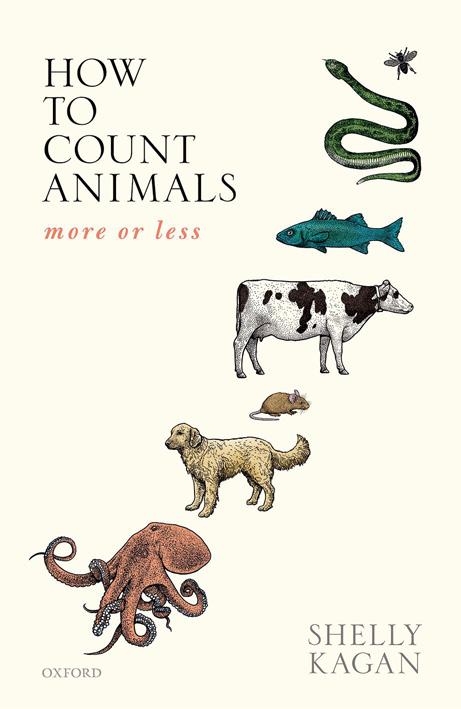Introduction
One of the most striking developments in moral philosophy over the last half century has been the remarkable explosion in the discussion of animal ethics, that part of moral philosophy that deals with our moral obligations toward (nonhuman) animals. It would of course be an exaggeration, but only a mild one, to say that fifty years ago philosophical discussion of the treatment of animals was virtually nonexistent. The topic suffered from something close to complete neglect. On the rare occasion when a moral philosopher had something to say about animals, it was largely a matter of admitting—albeit only in passing—that it was wrong to be cruel to them, that the gratuitous infliction of pain was morally problematic. And then, for the most part, the matter was typically left at that.
Fifty years later the pendulum has swung the other way. Animal ethics is now a well entrenched subdiscipline within the field of moral philosophy as a whole. There is an ever growing cascade of books and articles devoted to the subject, a constant stream of journals and conferences. What’s more, it seems to me that a particular philosophical position within animal ethics has emerged as well.
I hesitate to say that it is the dominant view. I doubt if there is enough consensus in the philosophical literature on animal ethics to have much of anything substantive lay claim to a title like that. But it does seem to me that many theorists are drawn to some version of the view I have in mind.
Here’s the basic idea. According to this view, otherwise similar harms or benefits for people and animals count equally from the moral point of view. “Pain is pain,” as the point is sometimes put.1 In this sense, animals and people can be said to have the same moral status. To be sure, there are important differences between people and other animals, including differences in terms of which goods and which bads are likely to be at stake in any given case. These, in turn, can make it morally appropriate to treat people and animals differently. But that’s not because animals somehow count less than people do, from the
1 Singer, Animal Liberation, p. 20; DeGrazia, Taking Animals Seriously, p. 234.
moral point of view. On the contrary, similar goods (or similar bads) are to be treated the same, regardless of whose interests are at stake. That is to say, in and of itself it matters not at all whether we are talking about the interests of a person or the interests of an animal. Similar interests are to be given equal weight in our moral deliberation, regardless of whether we are dealing with a person or an animal. Strictly speaking, everyone has the same moral status.
For obvious reasons, it would be natural to call this position egalitarianism. It assigns the same weight to the interests of animals and of people. It gives the same moral status to both, considering neither group higher or lower than the other.
But for still other reasons, equally obvious, it would be potentially misleading to call the position in question egalitarianism, for the label is already in use as the name for views that hold that equality has moral significance in its own right (for example, that there is value in the equal distribution of welfare). Since I intend to eventually discuss egalitarian principles of this sort, using the term “egalitarianism” for the first sort of view as well would only invite needless confusion. So we’ll need another name for the position I am trying to describe.
Accordingly, I propose to call the view in question unitarianism, since it holds that there is only one kind of moral status—a status shared by both people and animals. The name is far from ideal, I suppose, but I cannot think of a better one, and if nothing else it has the advantage that “unitarianism” is not already the name of any sort of prominent position in moral philosophy.
Unsurprisingly, unitarians differ from one another in all sorts of ways. For it is one thing to say that all of us—people and animals alike—have the same moral status. It is quite another thing to spell out what that status involves, just how it is that we are morally required to treat one another. Thus there can be, for example, unitarian utilitarians, instructing us to bring about the greatest balance of pleasure over pain. As unitarians, such utilitarians simply remind us to count the pleasures and pains of animals every bit as much as the pleasures and pains of people. And there can be unitarian deontologists as well, instructing us, say, to avoid harming the innocent (even if the results of harming them would be better overall). As unitarians, such deontologists remind us to avoid harming innocent animals, just as we are to avoid harming innocent people. In short, almost all of the sundry debates within normative ethics remain contentious and unresolved even if we embrace unitarianism. In and of itself, unitarianism doesn’t tell us how to treat people or animals; it only tells us that the same fundamental rights extend to all.
As we will see, there is a lot to be said in favor of unitarianism. But one advantage should be apparent from the start. If we accept unitarianism then it
is reasonably easy to see how to extend our moral theory so that it covers not only people but animals as well.
The truth, of course, is that in the past almost all of our moral theorizing has been limited to thinking about people. And while, as I have just observed, the debates in normative ethics are far from resolved, it does seem fair to say that for the most part what we have been working our way towards, by means of these debates, is a normative theory that would accurately tell us about the obligations that people have toward people. So even if you have such a normative theory worked out to your own satisfaction, strictly speaking you still face the question of how to extend or generalize that theory so that it covers animals as well. Unitarianism provides a simple and straightforward answer to that question: our interactions with animals are governed by the very same set of principles that govern our interactions with people (as spelled out by your favorite normative theory). Armed with a normative theory adequate for dealing with people, there is no further work to be done.
In contrast to the unitarian approach to animal ethics, it seems to me that common sense embraces, rather, a hierarchical approach, where animals count, but count in a lesser way.2 On this alternative view, people have a higher moral status than animals do. There are still restrictions on how we are to treat animals, but these are not the very same restrictions that govern our treatment of people. People have rights that animals lack, or have stronger rights, or perhaps a person’s interests count for more than (or count in different ways from) an animal’s.
Admittedly, one should probably hesitate before making confident assertions about common sense in this area. Some people apparently believe that animals don’t have any sort of moral standing at all; they are merely one more resource to be used as we see fit.
I suppose there is a sense in which a view like this—where animals lack moral standing altogether—could still be described as hierarchical, since people clearly have a higher status on this account than animals do. But similarly, there is a sense in which such a view could instead be called unitarian, since it holds that there is indeed only a single moral status (that had by people). But as I intend to use the terms, at any rate, neither label applies to those who simply deny the moral standing of animals. As I intend to use the terms, both unitarians and hierarchy theorists agree that animals do indeed count, morally speaking; animals have moral standing. Unitarians and hierarchy theorists differ only in
2 Although closer to common sense, the hierarchical view has few explicit defenders in the philosophical literature. Kazez, Animalkind, is a notable exception (see, especially, chapters 5 and 6).
terms of whether animals have the very same moral status as people or a lower one. Accordingly, if enough people believe that animals don’t count morally at all, then it would be a mistake to claim that common sense embraces a hierarchical approach.
I suspect that most people reject the extreme claim that only people count. What I take to be the common view, rather, is that animals do indeed count morally, but they simply do not count in the very same way that people do. Animals count for less.
Of course, here too, there remains tremendous room for disagreement. In addition to the familiar debates from normative ethics about the details of our obligations toward people, questions about the appropriate extension of our normative theory now become pressing and difficult. After all, it is one thing to say that animals count, but in a lesser way. It is quite another thing to spell out exactly how they count, what it really means to say they count in a lesser way. If the interests of animals are not to be counted in precisely the same fashion as the interests of people, how then are they to be counted? Although it does seem to me to be true that common sense accepts a hierarchical approach (or, at a minimum, it is true that a lot of people accept something like that idea), I don’t think there is anything close to a clear understanding of what the lesser standing of animals entails.
In this book, I am going to argue for a hierarchical approach to animal ethics. Given what I have just said, then, at best I can only partially claim the mantle of common sense. I do think that many readers will find my central thesis—that the right approach to animal ethics is a hierarchical one—to be fairly obvious, hardly worth arguing for. But at the same time, if I am right that there is nothing like a consensus about what the lower status of animals comes to, then I imagine that the various specifics yet to come will remain controversial.
However, it is probably best to admit right from the start that I won’t actually be developing a detailed hierarchical theory. At best, I am going to offer a sketch of what a theory like that might look like. In fact, truth be told, in many places—really, in most places—all I will be doing is trying to point out how desperately far we currently are from having an adequate moral theory when it comes to the treatment of animals. Unlike the unitarians, who think it a relatively trivial matter to extend moral theory to cover animals, I find myself thinking that we remain very much in the dark about how best to do that. I can only say how to count animals more or less.
I do however want to emphasize one point before we go any further. Although I will be defending a hierarchical approach to animal ethics, I do so with considerable misgivings, for I am afraid that some may come away thinking
that my aim to is to defend an approach that would justify much or all of our current treatment of animals. After all, it seems reasonable to suggest that it is part of the commonly accepted view that our treatment of animals is, in the main (even if not in all specifics), morally acceptable; and I have already suggested that the common view is a hierarchical one. So in defending hierarchy, aren’t I defending—in broad strokes, at least, if not with regard to every detail— our current treatment of animals?
But nothing like this is remotely the case. Our treatment of animals is a moral horror of unspeakable proportions, staggering the imagination. Absolutely nothing that I say here is intended to offer any sort of justification for the myriad appalling and utterly unacceptable ways in which we mistreat, abuse, and torture animals.
In this regard the unitarians have an easier time of it. No one would be tempted for even a moment to suggest that we already treat animals in anything like the way that morality requires us to treat people. So unitarians are very well positioned to condemn current practices for the moral monstrosities that they are.
But that doesn’t make unitarianism the truth. On the contrary, it seems to me to be true both that animals count for less than people and yet, for all that, that they still count sufficiently that there is simply no justification whatsoever for anything close to current practices. It may be less straightforward to condemn our abuse of animals once one embraces a hierarchical view, but it is still important to do so.
Having said that, however, I should nonetheless warn the reader that the requisite arguments for the unjustifiability of our treatment of animals will not be found in what follows. To work out those arguments with care one first needs to articulate in detail the appropriate hierarchical normative theory; and as I have already suggested, it seems clear to me that we are very far indeed from having anything like that. This book is intended as a contribution to the attempt to produce the relevant hierarchical theory. But the truth is, it throws out far more questions than it answers.
1.1 Standing and Status
My central claim with regard to the morality governing our interactions with animals is that an appropriate theory here will be hierarchical, recognizing that people have a higher moral status than animals do.
Of course, this claim needs to be qualified and clarified in various ways. For example, the short statement just given might create the misimpression that I think we should recognize exactly two levels of moral status, one had by people, the other had by animals. In point of fact, however, it seems to me that an adequate theory will actually recognize multiple levels, since not all animals have the same status. For that matter, it seems to me likely that not all humans have the same status either. My claim is only that people have a higher status than animals; and the simple fact is that not all humans are people.
In making this last point, I am following the standard philosophical practice of distinguishing between being a human and being a person. Humans are members of our biological species, Homo sapiens. But when I speak of a person, I have in mind a creature—of whatever biological (or nonbiological!) sort— that has certain characteristic psychological capacities and thoughts, a creature that is rational and self-conscious, aware of itself as existing across time.1 Almost all adult humans are persons in this sense of the term, but obviously enough no newborn humans are. And, tragically, not all adult humans are persons either. Some adult humans are sufficiently severely cognitively impaired that they fall short of possessing the sophisticated cognitive capacities that I mean to be picking out in calling someone a person.
On the other hand, and this point is worth emphasizing as well, there is no reason to assume that the class of persons is limited to some subset of humans. It could well turn out that some of the other animals with which we share the planet are in fact people (a term I will often use as the plural of “person”), despite our long-standing failure to recognize them as such. If so, they too will have a
1 See Singer, Practical Ethics, pp. 73–5, for some further discussion of the contrast.
higher moral status than that had (or those had) by the relevant “lower” animals. However, having now acknowledged this important point, there is no need to be constantly repeating it explicitly. So unless context indicates otherwise, when I refer simply to “animals”—saying for example that animals have a lower moral status—it should be understood that I have in mind only nonhuman animals that fall short of being people.
There will be more about much of this in what follows. But let’s start by trying to get clearer about the very idea of moral status. My claim is that people have a higher moral status than animals. But what, exactly, are we talking about when we talk about moral status?
In answering this question it may help to begin with an even more fundamental concept, that of moral standing. To say that something has standing is to say that it counts, morally speaking, in its own right. There are moral principles limiting how we may treat the object in question. But beyond that—and this is the crucial point—if we violate these principles, we wrong that being. That is to say, our duties with regard to the being are owed, at least in part, to the being itself. Ideally, we should act, at least in part, for the being’s own sake.
As it happens, providing precise analyses of the various locutions that I’ve just helped myself to—wronging, owing a duty to, acting for the sake of something—turns out to be a surprisingly difficult matter.2 I won’t try to offer such analyses here. Happily, I suspect that most of us have a ready enough grasp on the relevant ideas; and in any event, a few examples are likely to be more helpful here than some contentious philosophical explications. Thus, to start with the most obvious case, we all believe that people have moral standing: it would be morally unacceptable to gratuitously rip someone’s arm off, and if we were to do that we would not only be acting immorally, we would be wronging the person we were harming. In contrast, most of us comfortably believe that there is nothing wrong with ripping off a petal from a flower. We are not wronging anyone or anything when we do this, and in particular we are not wronging the plant.
Of course, in some cases it is morally wrong to rip a petal off of a flower. If the plant is your prize orchid, then it may well be morally wrong for me to harm it. But even in this case I do not wrong the flower. Rather, I wrong you. I may have a duty to not harm the orchid, but this is not a duty I owe to the plant itself, I only owe it to you. So even here, the plant does not have moral standing.
2 Obviously, these terms don’t all mean the same thing. But since I am only using this series of locutions to help to locate the intuitive concept of moral standing, focusing on any single one of them would invite needless controversy.
That’s why the crucial point is not whether there are moral limits to how we may treat any given object. With sufficient ingenuity we can always come up with a scenario in which moral limits of some sort will exist. The question, rather, is whether the object counts in its own right, for its own sake. And what most of us believe, obviously enough, is that this is not the case when it comes to plants. People have moral standing, but plants, it seems, lack it.
Admittedly, some dissent from this judgment, arguing that plants do have moral standing, despite the common belief to the contrary. But right now the question is not the validity of the common judgment that plants lack standing. The point is only to understand what that claim comes to.
What about animals? Here too this is a point where we find some differences of opinion. As I noted in the introduction, there are some individuals who think that animals don’t count at all, simply lacking any kind of moral standing. But most of us, at any rate, think otherwise. If someone were to gratuitously rip off the leg of a mouse, for example, I take it that almost all of us would think this morally unacceptable, and—the crucial point—most of us believe that to do so would be to wrong the mouse itself, regardless of whether anyone else was wronged as well. Intuitively, then, the mouse counts in its own right. Which is just to say, most of us recognize that the mouse has moral standing.
This use of the term “moral standing” is fairly minimal. To say that something has standing is to say that it counts, but it is not yet to say just what the relevant limitations are with regard to how we treat it. It is here that the notion of status comes into play. We can use the idea of status to refer to the sets of normative features governing how we are to treat those things that have moral standing.
Thus, for example, if we are morally required to count the interests of some individual a given way, then that is part of its moral status. If we must refrain from hurting it, say, or lying to it, then that too is part of its status. If we must aid it, or rescue it in times of need, or defend it against threats, that is part of its status as well. If it is inviolable, say, never to be harmed no matter what the circumstances, that is part of its status; and if, instead, it may be harmed, or its interests permissibly sacrificed under specified circumstance, then that too is part of its (rather different) moral status. We can think of each creature as having a normative profile, consisting in the set of features that govern how it is to be treated. Talk of a given being’s moral status is a way of referring to the contents of that profile.
In principle, at least, it would seem that the moral status of one being could differ from that of another. Two creatures could be similar in that both had moral standing of some sort, and yet for all that, one of them could have a more
encompassing, or more demanding, or more extensive normative profile than the other. In this sense, the first creature would have what we would naturally think of as a higher or greater moral status. If, for example, it was wrong to impose a given sacrifice upon a person (despite the good results that this would bring about), and yet it was morally permissible to impose a comparable sacrifice upon a cow (for the same results), then this might warrant our saying that people have a higher moral status than cows.
I say that this might warrant ascribing a higher moral status to people, because the particular normative feature I have just described would only be one of the many features governing our interactions with people or with cows. To be sure, this feature is such that—if it obtained—it would be natural to think of people as having a stronger or more significant moral claim in this regard than cows. But even if people had stronger moral claims in some areas, it could in principle still turn out that in yet other areas it was cows that had the stronger claims. If something like that were the case, then it might not be particularly helpful to think of either cows or people as having an overall higher moral status than the other. On the other hand, if one of these had stronger moral claims with regard to a wide range of normative features, then talk of having a higher moral status might well be helpful and appropriate. And of course, even if it did turn out that cows had a lower moral status than people do, it could still be that case that cows nonetheless have a higher moral status than that had by snakes, say, or flies.
I have suggested using the term “status” to pick out the various normative features that govern our treatment of the given being. Strictly, however, this is probably too broad a use of the term for our purposes. After all, the particular moral restrictions that happen to apply to how we are to treat a given individual may well vary, depending on the specific circumstances of the situation in which we happen to find ourselves. Yet we would not normally think of this sort of highly situation-dependent feature as part of the thing’s moral status per se.
Suppose, for example, that it is generally wrong to kill cats, even if this is done painlessly. Then it certainly does seem appropriate to think of this feature as an important part of the moral status of cats. In contrast, however, if there is normally nothing wrong with killing cats painlessly, and it just happens that I have made a promise to you not to kill your cat, then despite the fact that my treatment of your cat is now morally governed by this further feature—I may not kill it—it does not seem appropriate to say that this is now part of the moral status of the cat in question. Similarly, if I give you permission to borrow my car, your normative profile now includes an element that was not there previously,
but that feature does not seem to be part of what we would normally have in mind in talking about your moral status.
Intuitively, it seems, the moral status of a given being is restricted to those more general and relatively stable features of its normative profile that do not turn on highly specific accidents of the particular situation. Admittedly, the distinction I’ve just drawn may not be a sharp one (it could certainly stand to be made more precise), but I hope it will suffice for present purposes. We can then say that something’s moral status consists in the elements of its broad normative profile that are highly general and relatively stable, rather than being particular and situation specific. When I talk of someone’s moral status, I have in mind these more general and fundamental normative features.
One further point. I have suggested using the term “status” to pick out the relevant fundamental features of one’s overall normative profile. But often enough people use the term in a related, but slightly different fashion—to refer abstractly to that which is the ground or basis of those normative features. Thus, on this alternative usage, rather than saying that someone’s status simply is the set of basic normative features that essentially govern how the being is to be treated, we would say instead that these normative features are in place by virtue of the creature having the moral status that they do.
As far as I can see, nothing substantive turns on which usage we settle upon. Either way, we will still face a pressing philosophical question, namely, what exactly provides the underlying explanation for why the creature has the particular moral status that it does? What properties of the creature explain why it has one possible status rather than another? Regardless of whether we adopt the first or the second use of the term, the significant philosophical questions remain the same.
I do find, however, that sometimes it is more convenient to use the term the one way, while at other times it is more convenient to use it the other way, depending on the context at hand. Accordingly, since, as I believe, nothing of philosophical significance turns on which way we talk, I will feel free to resort to whichever usage seems most convenient in the given case.
1.2 Sentience
Eventually, we will want to examine the idea that some animals have a higher status than others. But I think it would be helpful to begin by asking, which animals have moral standing of any sort at all?
Here is a familiar sort of case (in the philosophical literature, at least) to get us started. Imagine that I take a cat, douse it with gasoline, and set it on fire. It shrieks with agony, and then it dies.
I imagine that pretty much anyone reading this book will agree that I have done something wrong. It is immoral to gratuitously cause such agonizing pain. What’s more, it seems clear that in performing this horrendous act, I wrong the cat. It may or may not be the case that the cat belongs to someone else; if it does, I presumably wrong its owner as well. But no matter, for even if the cat is a stray, I owe it to the cat itself not to cause it pain in this way. Morally speaking, the cat counts in its own right. It has moral standing.
Historically, we know, there have been people who would resist this description of the case. Some would claim that cats don’t actually feel pain. Despite the shrieks and despite the other bits of bodily behavior on the part of the cat that seem so strong an indication of its suffering, some have argued that cats—and more generally, other nonhuman animals—feel no pain at all. They are not sentient. They are, instead, mere automata, fancy cuckoo clocks that simulate and imitate the sort of vocal and bodily behavior that would indeed indicate pain were it done by a human. But in this case, nonetheless, such sounds and behavior reveal nothing of the sort. Cats, the claim goes, actually feel nothing “on the inside” at all.
I will not take the time to attempt to refute this view. Others have already done it.3 And if there still are some who deny sentience to cats and other animals nothing I can say here is likely to sway them. My concern is solely with those who agree with what almost everyone will insist upon in any event—that cats can feel pain.
Similarly, I will not take the time to refute those who recognize that setting a cat on fire will cause it pain but who insist nonetheless that doing this is not wrong, or—alternatively—that it is wrong, but not by virtue of any claim that the cat itself has upon us. Some would insist that if it is in fact immoral to set a cat on fire, this can only be by virtue of its effects on others. Perhaps seeing the cat suffering will cause distress to some sympathetic passersby, or maybe it will coarsen my own character making it more likely that eventually I will maliciously harm some other human. For these and other reasons, it might be suggested, it could still be wrong to set the cat on fire, even though, strictly speaking, the cat has no moral standing in its own right.
As I say, I won’t attempt to refute this sort of view either. Almost all of us agree that it is wrong to cause this kind of pain to a cat, and that it is wrong precisely because the cat does indeed matter in its own right. Setting a cat on fire is abuse of the cat, and the cat has a moral claim against us not to mistreat it in this way. The cat has moral standing—it counts in its own right. And more particularly, of course, its moral status is such as to rule out the legitimacy of
3 See, for example, DeGrazia, Taking Animals Seriously.
such gratuitous infliction of suffering. But in any event, my goal here is not to convince those who think otherwise. Rather, I want to raise the question, for those of us who readily recognize the overwhelmingly obvious thought that the cat counts morally in its own right: by virtue of what fact is it that the cat counts? What is it about the cat that grounds its moral standing?
The obvious answer, of course, is that the cat counts precisely by virtue of the fact that it can (and in this instance does) feel pain. Nothing more is required for the cat to have moral standing than for it to be true—what almost all of us recognize to be true—that cats can feel pain. This fact suffices, all by itself, to give cats moral standing: they can feel pain.
And once that thought occurs to us, it generalizes immediately. Any creature of any sort whatsoever that can feel pain will also have moral standing, by virtue of that very fact.
Notice how relatively modest this claim is. We need not yet take a stand on whether, morally speaking, all creatures that can feel pain are such that their pains count in precisely the same way. That question can come later. For the time being it is sufficient to recognize the overwhelming plausibility of the more minimal thought that if something can feel pain, then it does in fact count in its own right.
We can generalize a bit more. Not only can cats feel pain, they can also feel pleasure. This too seems relevant to moral standing, in more or less the same way, though of course it would take a different particular example to bring the point out. Regardless, it seems plausible to suggest that it is this same underlying capacity to feel pleasure and pain that suffices to ground the moral standing of cats and other animals: such animals count by virtue of their ability to feel pleasure and pain. Or, putting the point in slightly different terms, sentience the capacity to feel or experience—suffices for moral standing.
This idea, that sentience suffices for moral standing, is an extremely common one in the literature on animal ethics. Indeed, it is very common to find the suggestion that moral standing coincides with sentience,4 so that the ability to feel pleasure and pain is not only sufficient for moral standing, it is necessary as well. Cows and cats and camels are all sentient, and they all have moral standing; stones and streets and scissors all lack sentience—not a one of them can feel pleasure or pain—so they all lack moral standing. Or so the thought goes.
Admittedly, some are less confident as to whether sentience is indeed necessary for moral standing, or merely sufficient. Some are attracted to the idea that
4 For example, Singer, Animal Liberation, pp. 7–8; Nussbaum, “Beyond ‘Compassion and Humanity,’ ” p. 309; DeGrazia, Taking Animals Seriously, pp. 50 and 226–31.
plants may have moral standing after all, or at least ecosystems might, or perhaps animal species (as opposed to individual animals). These are interesting claims, but I won’t consider them further. I suspect that many of us would agree that there may be some moral restrictions governing how we treat at least some of these things. Yet at the same time I imagine that most would nonetheless insist that even if we violate the relevant principles in some such case we are not wronging the plants, or the ecosystems, or the species, if we do; we do not owe anything to an ecosystem, for example, even if there are moral principles that restrict how we are to treat it. All of which is just to say, we are not inclined to think that ecosystems, or species, or plants (and so on) have moral standing in the sense of the term that we are employing.
So it isn’t all that surprising when we find so many theorists saying that sentience is both a necessary and a sufficient condition for moral standing.
Actually, though, despite the frequency with which this idea gets put forward, I wonder whether it is really what people mean. One qualm I have is small and perhaps a bit nitpicky. The other seems to me to be significantly more important.
The relatively small qualm is this. The standard proposal is that sentience is both necessary and sufficient for moral standing. But is it actually sentience per se that people have in mind when they say this, or something rather narrower? After all, sentience is typically used in philosophical writing for the entire capacity for subjective experience and feeling. I take this to mean, in terms of yet further philosophical jargon, the ability to have conscious, qualitative experiences of any kind, not simply experiences of pleasure and of pain. Thus, for example, any being capable of experiencing the color blue, the particular sweetness of pineapple, or the unique smell of coffee, and so forth, would count as sentient, regardless of whether such a being were capable of feeling pleasure and pain. Pleasures and pains are among the sensory experiences which can be had by those who are sentient, those with an inner mental life with a qualitative aspect—a creature such that it makes sense to ask “what is it like to be” such a creature5—but there is more to sentience than simply the experience of pleasure and pain.
So what is it that actually grounds moral standing, according to the common proposal? Is it indeed sentience per se? Or is it, more narrowly, precisely the ability to experience pleasure and pain (or, perhaps, if one could have one without the other, the ability to experience either pleasure or pain)?
5 Nagel, “What is it like to be a Bat?”
One way to get a fix on this question would be to imagine a creature that had qualitative mental states but was incapable of experiencing either pleasure or pain. (As a loose analogy, consider the fact that someone blind—incapable of experiencing color—can nonetheless experience the other sensory modalities.) Such a creature, we can suppose, might well have complex visual or auditory or olfactory experiences, for example, but it would not experience any of them as pleasant or painful. It might, for example, have a qualitatively distinct experience when seeing a sunset, say, but it would not experience those sensory states as pleasant. Indeed, it might even have various qualitatively distinctive experiences when different parts of its body were undergoing damage or trauma—for example, when its foot was being stepped on—but it would not experience those inner states as painful (or pleasant). Similarly, for its various other qualitative mental states as well.
For creatures like us, of course, pleasure and pain are so deeply intertwined with the other qualitative aspects of our mental life that we may find it difficult to fully imagine what it would be like to be such a being. But in principle, as far as I can see, it should be possible for someone to be sentient while nonetheless being utterly incapable of experiencing pleasure or pain.
So suppose we had such a creature. In fact, to make the example even more stark, imagine a creature that could occasionally experience blue, but had no other qualitative states at all. Would it count? Would it have moral standing? Would it be possible to wrong such a creature?
Thinking about this case allows us to ask whether it is really correct to say that sentience of any sort at all is truly sufficient for moral standing. Perhaps, on reflection, we might decide that what is really required for standing is the ability to feel pleasure or pain, full stop. Mere sentience, in the absence of the ability to feel pleasure or pain, may not actually suffice.
I am not at all confident as to what most people would judge about the moral standing (or lack of standing) of a creature of this simple sort, though I suspect that many at least would deny it standing. But I do want to forestall one possible line of thought. Some might worry that whatever uncertainty we may have about moral standing in this case is simply due to the fact that the creature in question has such an absurdly restricted range of qualitative experiences. Perhaps the problem isn’t really the lack of the ability to feel pleasure or pain per se but rather the simple fact that the creature can only experience blue, nothing more. Maybe so limited a range of sentience is too limited to count.
This suggestion is tempting, but I suspect that it misses the mark. Imagine a different creature, equally simple in that it too has an extraordinarily limited range of subjective experience, except that in this new case the only experience
of which the creature is capable is that it can occasionally feel a mild pain. In this case, I think, we would much more readily ascribe moral standing, even if only of a limited sort. There may not be much that we can do to harm or benefit such a creature, but there is something, and if we gratuitously cause it to feel the mild pain that it is capable of feeling (in the absence of some special justification for doing so), then I take it that we wrong it. So it seems that even highly restricted forms of sentience are compatible with moral standing, provided that they involve the ability to feel pleasure or pain.
Arguably, then, despite the fact that people frequently say that sentience suffices for moral standing, it is at least possible that what many of them really mean is that it is the ability to feel pleasure and pain that suffices. Mere sentience, on its own, may not be enough.
Furthermore, it is easy to see the appeal of a narrower account of this kind. If our simpleminded creature experiences pain, after all, it is hard to escape the thought that this is bad for it. Similarly, if a different simpleminded creature— one that could only experience certain mild pleasures—were to experience one such pleasure, it would be hard to escape the thought that that would be good for it. In this way, the ability to experience pleasure or pain underwrites the possibility of undergoing benefit or harm. And it seems plausible to think that the very possibility of this sort of benefit or harm is relevant for having moral standing. Creatures that can experience pleasure and pain have moral standing precisely because we can affect their welfare. That thought, or at any rate something close to it, is one that many will find attractive.
In contrast, when we consider the creature that can only experience blue, the connection between that experience and its welfare is broken. Indeed it is not at all immediately clear—in the absence of further detail—whether such a creature even has a welfare. But in any event, it certainly doesn’t jump out at one that experiencing blue, in and of itself, could be either good or bad for it. And that very fact may go a long way toward explaining why many would hesitate to ascribe moral standing to a creature—even a creature that by hypothesis is stipulated to be conscious or sentient—when all we know about it is that it is capable of experiencing the color blue.
On the other hand, our hesitation about ascribing moral standing might well disappear were we to learn that the creature has preferences with regard to its conscious experiences—if we were to learn, in particular, that it wanted to have its occasional experience of blue, and if it behaved in such a way as to maximize its chances of undergoing these experiences. Mere sentience alone may not suffice for moral standing, but sentience backed by this kind of pattern of preference and behavior might well suffice. But this brings us in turn to the
second, more important, qualm I have about the common claim that sentience is both necessary and sufficient for moral standing.
1.3 Agency
To approach this point, I want to consider a different thought experiment. Imagine that you have been kidnapped by aliens from another planet, who—let us suppose—plan to keep you in their intergalactic zoo, or perhaps to experiment on you, or worse. Suppose that you are able to communicate with them (maybe they’ve learned our language), and you are trying to persuade them that keeping you would be wrong, that they should let you go back to your life on Earth. What might you say? I want to quote at length from the writer on animal ethics who first proposed this scenario. She suggests that you
might express your desire not to be held captive, that being held against your will is wrong, and that it prevents you from doing not just the things you want to be doing at home, but the things you are supposed to be doing. These aliens are frustrating your desires and preventing you from fulfilling your obligations to others. You might explain that you are a rational and sensitive individual who has immediate desires and longterm plans that you hope to satisfy. You don’t think you should be treated as a means to some alien ends. You might try to bargain with them, telling them you will do something for them if they do something for you. You have relationships to others that you want to continue to pursue, and you would be willing to develop a relationship with them if they respect you. You value your freedom and your ability to make choices.
You need to be with your friends, family, and others of your kind. If you are forced to stay with the aliens, you will become bored, frustrated, lonely, angry, and depressed. You may even die. Holding you captive, against your will, harms you in many, many ways.6
Now I must confess, I find this sort of answer fairly persuasive. It seems to me that these are indeed the sorts of considerations that others should be moved by. If we imagine that the aliens are moral agents, capable in principle of recognizing when others have moral standing and then being moved by the various moral requirements that follow from someone’s moral status, then it seems to me that in principle at least the aliens should find an answer like this compelling.
It won’t surprise you to learn that our author goes on to suggest that many remarks parallel to these can then be made on behalf of animals. If this imaginary
6 Gruen, Ethics and Animals, p. 26.
plea to the aliens is compelling, she argues, then thinking about an analogous plea on behalf of animals should help us recognize that much of our current treatment of animals is unacceptable as well. And I think that some kind of argument along these lines may well be right.
But what I particularly want to draw your attention to is just how little of this imaginary speech to the aliens has anything much to do with the fact that you are sentient—where we continue to mean by that term the fact that you are capable of having conscious experiences, with a qualitative aspect. On the contrary, what the proposed answer primarily dwells upon is the fact that you are a being with your own preferences and plans, desires concerning how your life should go, and a will that is opposed to what is now being done to you. As far as I can see, sentience per se plays very little role in any of this. (Indeed, the word itself isn’t even used.)
To be sure, it isn’t as though references to conscious experiences don’t appear in the plea at all. There is a passing reference toward the start of the reply to your being a “sensitive” individual, and that is probably intended to be a way of alluding to your sentience. And toward the end there are references to the possibility of your becoming bored, frustrated, lonely, angry, or depressed—and these states certainly do typically involve conscious experiences of various unpleasant kinds as well. So sentience is certainly part of what is being mentioned here.
But as I say, it doesn’t seem to be the focus of the argument. The main complaint doesn’t seem to be that if you are held against your will you will suffer some painful experiences, but rather precisely the fact that you have a will, that you have desires about what you want to do and what you want to happen, that you have plans and goals that you intend to act on, given the chance—and that being abducted in this way frustrates your plans, violates your will, and interferes with your ability to act as you choose. It is these facts about you, rather than your sentience per se, that seem to provide the core of the argument that there are limits to how you are to be treated, that abduction by the aliens fails to take into account the fact that you are a creature with moral standing.
It would be useful to have a name for this second, interrelated set of facts about you, that is, on the one hand, the fact that you have desires and plans, preferences concerning how your life goes and what you want to do with it, and—beyond this—the further fact that these preferences are normally no mere idle and impotent set of evaluations, but rather are things you act upon, choosing which goals to promote and behaving accordingly. I propose to use the term agency.
With this stipulation in place, we can summarize the point I have just been making by saying that in your imagined attempt to persuade the aliens that
their treatment of you is wrong, the appeal to the fact of your sentience actually plays at best a minor role. What seems far more central is an appeal to the fact of your agency.
It must be admitted that my using the term “agency” in this way isn’t ideal. Sometimes philosophers use the term more narrowly than I plan to use it, so that someone or something has agency (in this narrower sense) only if they meet some further conditions as well, beyond the relatively minimal conditions of having preferences and acting on them. In this narrower sense of the term, to have agency—to be an agent—one must have free will, or perhaps one must self-consciously deliberate about what there is reason to do, or one must be capable of responding to moral reasons, or perhaps one must view what one intends to do as good in some way. These various proposals (and there are, of course, still others) are obviously not all identical to one another, and depending on the details of how they get spelled out, a wider or narrower set of individuals will count as having agency. But what these various proposals have in common is that if we adopt one or another of these uses then there are far fewer agents—in the relevant sense—than there are if instead we use the term in the very wide way that I have in mind. Accordingly, there is at least some danger that in using the term as widely as I propose, we will sometimes inadvertently slip into thinking in terms of one or the other of these more “sophisticated” notions of agency. Hopefully, however, having noted this danger, we can avoid making this kind of mistake.
Note, in any event, that if we do indeed find ourselves moved by the thought that a speech similar to the one I’ve quoted can be provided on behalf of a wide range of animals—and if we agree as well that the core of that speech is devoted not to noting your sentience but to emphasizing your agency—then we need to be thinking in terms of a notion of agency that is expansive rather than restricted. For although it seems almost uncontroversial that animals display agency in my wide sense of the term, it is far less obvious whether many (or any) of them have free will, or self-consciously deliberate about the balance of reasons, or act under the guise of the good, and so forth. So if the parallel speech on behalf of animals is to be plausible, it had better be one that appeals to the agency of animals in a suitably broad sense of the term.7
7 Other terms that we might have used instead, like “rationality” or “intelligence” have similar limitations. Take the term “rationality.” Sometimes this term is used broadly, to mean a general capacity—which we share with animals—for deliberation and intelligent choice. That might make it suitable for our purposes. But often enough philosophers use it more narrowly, so that it is appropriate to talk of rationality only with regard to the special capacity for self-conscious deliberation about reasons that we make use of when we reflect in a highly deliberate way about which desires to act on (or how best to achieve our goals). Arguably, few if any animals are rational in this more narrow sense of the term. But if we are to move from the original speech to one on behalf of animals, it is the more general, shared capacity that must be the focus of our plea.
Admittedly, in the original speech, some of the more narrow notions of agency do appear as well. For example, one suggestion mentioned is that you should complain to the aliens about the fact that if you are abducted you cannot fulfill your obligations to others. Clearly, raising that sort of consideration brings in your ability to consciously respond to moral reasons, in a way that the mere appeal to agency in the wide sense does not. But it seems to me that at best this strengthens your case; it isn’t essential to it. The crucial point, or so it seems to me, remains the simple idea that you have a wide variety of desires concerning what you want to do, and how you want to live your life, and that your abduction systematically interferes with your ability to act on those desires. Accordingly, even if we imagine your pleading with the aliens by means of emphasizing that point alone (perhaps combined with an appeal to your sentience), there would still be considerable force to your speech. The mere fact of agency in the broad sense—having desires and wanting to act on them—carries considerable weight in establishing your moral standing.
Accepting this point needn’t be incompatible with the earlier suggestion that sentience is necessary for standing. It might be, for example, that agency presupposes sentience (a point we will consider below), in which case, of course, emphasizing someone’s agency is simply an effective way of drawing attention to their sentience—the real basis of their having any moral standing in the first place. Or it might be that, strictly speaking, sentience is indeed required if one is to have any kind of moral standing at all, but facts about agency are nonetheless relevant to one’s particular moral status—so that how it is, exactly, that others are required to treat you depends in part, perhaps in large part, on details about the nature of your preferences, plans, intentions, and so forth. After all, since your goal in pleading with the aliens is to persuade them that it is wrong to abduct you, merely establishing that you have moral standing wouldn’t really suffice for your purposes. What you need to convince them of as well is that your particular moral status rules out that sort of treatment. Perhaps that is what the appeal to agency accomplishes, and why it seems so essential to the speech. So acknowledging the significance of agency is certainly something that can be done even by those who insist that sentience is a requirement for moral standing.
Nonetheless, recognizing the central role that agency plays in your speech to the aliens does at least suggest, if nothing more, that perhaps we err if we insist that sentience is indeed a requirement if one is to have moral standing. Perhaps agency suffices as well. That is to say, perhaps there are two potentially distinct bases for moral standing, sentience and agency, and either one is sufficient for grounding some sort of moral standing. This is, at the very least, a possibility worth entertaining, and I must say that it surprises me how regularly writers
